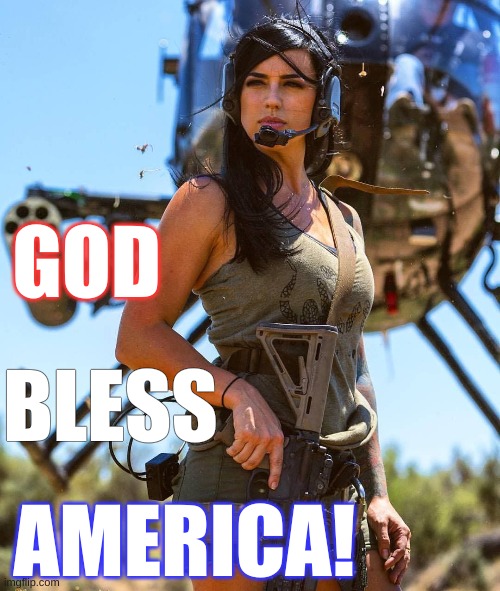Dutch Uncle
* Tertia Optio * Defend the Constitution
Donald Rumsfeld seems to have originated that exact phrase during an Iraq briefing (and referencing the Iraqi government's progress). Robert F. Kennedy Jr expanded on the phrase with the linked quote below.
We're seeing the mess now with Trump, but we've seen it all of our lives, especially in election years. One thing seems to always be clear: it's never going to be as good as they say, but it's also never going to be as bad.
https://www.vanityfair.com/news/201...-on-the-environment-election-and-donald-trump
Democracy is messy, and it’s hard. It’s never easy. Peter Bahouth, who ran Greenpeace, I asked him one time what it was like running Greenpeace, and he said it’s like being in charge of a million people and the only thing they have in common is that they all hate authority. It’s the same thing with this organization; it’s like herding cats. You have these very tough, turf-conscious, ornery, talented, smart local leaders, who are suspicious and don’t want to be told what to do, and the job of national organization is to try to funnel them all into what is a movement. And so there’s always a tension between the democracy and the effectiveness. That’s why we’ve created governance institutions and mechanisms to manage that tension. I think they’re pretty unique.
https://www.journal-times.com/opini...cle_e5a0d7b2-5f68-11e4-9ab5-c35632bc8cb1.html
Editorial:
We're seeing the mess now with Trump, but we've seen it all of our lives, especially in election years. One thing seems to always be clear: it's never going to be as good as they say, but it's also never going to be as bad.
https://www.vanityfair.com/news/201...-on-the-environment-election-and-donald-trump
Democracy is messy, and it’s hard. It’s never easy. Peter Bahouth, who ran Greenpeace, I asked him one time what it was like running Greenpeace, and he said it’s like being in charge of a million people and the only thing they have in common is that they all hate authority. It’s the same thing with this organization; it’s like herding cats. You have these very tough, turf-conscious, ornery, talented, smart local leaders, who are suspicious and don’t want to be told what to do, and the job of national organization is to try to funnel them all into what is a movement. And so there’s always a tension between the democracy and the effectiveness. That’s why we’ve created governance institutions and mechanisms to manage that tension. I think they’re pretty unique.
https://www.journal-times.com/opini...cle_e5a0d7b2-5f68-11e4-9ab5-c35632bc8cb1.html
Editorial:
“The difference between a democracy and a dictatorship is that in a democracy you vote first and take orders later; in a dictatorship you don't have to waste your time voting.”
That cynical observation came from the late Charles Bukowski, an author described by Time magazine as “the laureate of American lowlife”.
Bukowski liked to say he chronicled the ordinary lives of poor Americans and the drudgery of work.
From another viewpoint, the late Winston Churchill wrote:
“The best argument against democracy is a five-minute conversation with the average voter.”
Finally, we quote the late Louis L’Amour, the Western novelist and short story writer:
“To make democracy work, we must be a nation of participants, not simply observers. One who does not vote has no right to complain.”
Several individuals take credit for the oft-used quote that “democracy is messy” but we believe it perfectly fits the election of 2014 in certain local and statewide races.
Voters keep telling us they are tired of the finger pointing, fear mongering, and name calling attack ads, all in the name of free elections.
We totally reject Bukowski’s premise that it doesn’t matter if we vote or not.
What Churchill said about uninformed voters still has the ring of truth but in this age of media manipulation it’s more like “misinformed”.
That becomes worse when some voters try to interpret what they think they heard from a particular candidate.
Election propaganda works best when a complicated issue is boiled down to a 30-second sound bite and then played too many times.
Making democracy work gets messy and sometimes the wrong folks get elected but we always have another chance to throw the rascals out of office.
In the end, we like what that old cowpoke Louis L’Amour said about not griping if you don’t vote.
That cynical observation came from the late Charles Bukowski, an author described by Time magazine as “the laureate of American lowlife”.
Bukowski liked to say he chronicled the ordinary lives of poor Americans and the drudgery of work.
From another viewpoint, the late Winston Churchill wrote:
“The best argument against democracy is a five-minute conversation with the average voter.”
Finally, we quote the late Louis L’Amour, the Western novelist and short story writer:
“To make democracy work, we must be a nation of participants, not simply observers. One who does not vote has no right to complain.”
Several individuals take credit for the oft-used quote that “democracy is messy” but we believe it perfectly fits the election of 2014 in certain local and statewide races.
Voters keep telling us they are tired of the finger pointing, fear mongering, and name calling attack ads, all in the name of free elections.
We totally reject Bukowski’s premise that it doesn’t matter if we vote or not.
What Churchill said about uninformed voters still has the ring of truth but in this age of media manipulation it’s more like “misinformed”.
That becomes worse when some voters try to interpret what they think they heard from a particular candidate.
Election propaganda works best when a complicated issue is boiled down to a 30-second sound bite and then played too many times.
Making democracy work gets messy and sometimes the wrong folks get elected but we always have another chance to throw the rascals out of office.
In the end, we like what that old cowpoke Louis L’Amour said about not griping if you don’t vote.

